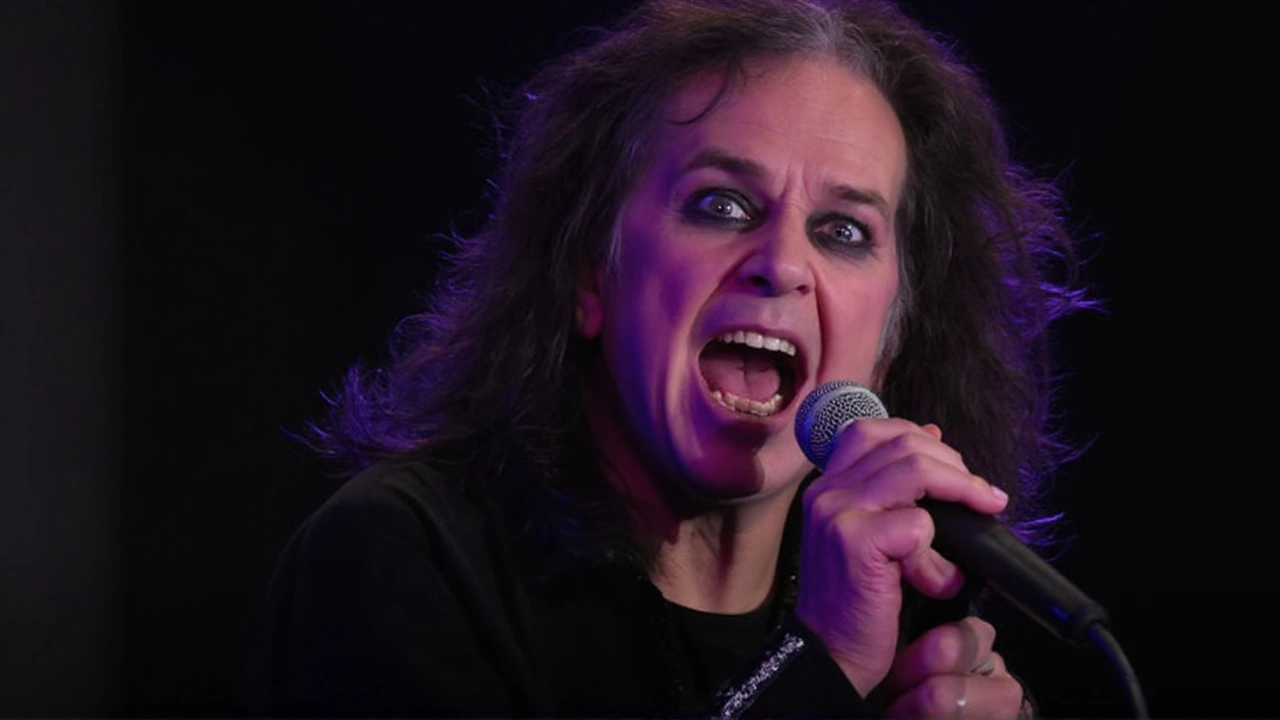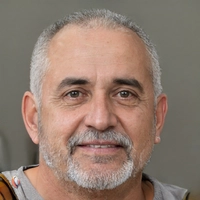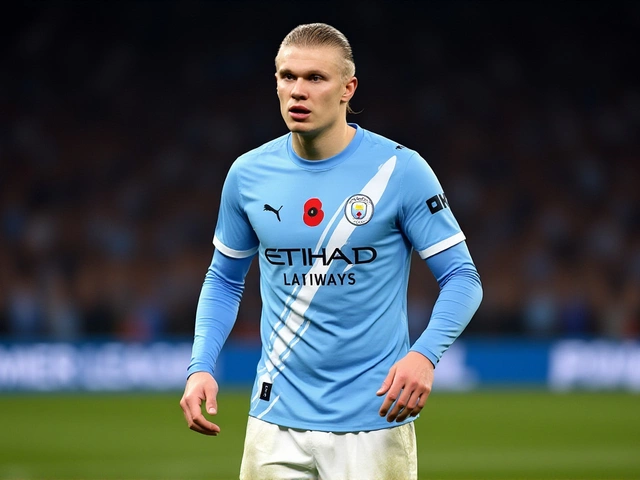A thunderous salute at the VMAs
Steven Tyler walked back on stage for one night, and it wasn’t for Aerosmith. It was for Ozzy. The 2025 MTV Video Music Awards turned UBS Arena in Elmont, New York, into a loud, heartfelt memorial for the Black Sabbath frontman, who died in July at 76. The segment was the kind of TV the VMAs rarely deliver anymore: ragged, risky, and raw, with a room full of pop fans roaring for heavy metal’s most recognizable voice.
The Ozzy Osbourne tribute pulled together a cross‑generational cast. Yungblud led the charge, joined by Aerosmith’s Steven Tyler and Joe Perry, Extreme’s Nuno Bettencourt, and longtime Black Sabbath and Ozzy touring keyboardist Adam Wakeman. They stitched together a medley of three songs that tell the story of Ozzy’s arc: the defiant rush of “Crazy Train,” the bruised reflection of “Changes,” and the aching homeward pull of “Mama, I’m Coming Home.”
Before a single chord rang out, a video message from Jack Osbourne set the tone. Jack spoke plainly about his dad’s legacy and the comfort of seeing other artists carry the torch. Then came the grin-inducing gut punch: Ozzy’s grandchildren shouting his trademark call to action — a little chaos, a little comedy, very Ozzy.
Yungblud kicked off with “Crazy Train,” pressing a kiss to the cross necklace Ozzy had given him and mouthing, “For Ozzy!” It wasn’t subtle, and it didn’t need to be. The song’s palm-muted churn and chant-along chorus snapped the room to attention. From there he sank into “Changes,” a quieter detour that let the arena breathe and remember. He had sung that piece at Ozzy’s final public show in Birmingham; bringing it back here connected the VMAs moment to Ozzy’s last bow.
The emotional high landed when Steven Tyler, 77, strode out beside Joe Perry for “Mama, I’m Coming Home.” Aerosmith announced a retirement from touring more than a year ago, so Tyler’s voice echoing through an arena again felt like a small miracle for rock lifers. The performance wasn’t about perfection; it was about presence. Tyler and Perry slipped into the song’s mournful, open-road melody like old pros paying respects to a peer.
Bettencourt and Wakeman did more than fill space. Bettencourt’s muscular rhythm and needlepoint leads kept the medley tight and modern without sanding off Ozzy’s grit. Wakeman shaded the transitions with organ swells and piano lines that nodded to the original recordings without copying them note for note. The mix honored Ozzy’s flair for drama, but it stayed human, not museum-piece tidy.
- Lineup: Yungblud (vocals/guitar), Steven Tyler (vocals), Joe Perry (guitar), Nuno Bettencourt (guitar), Adam Wakeman (keys)
- Setlist: “Crazy Train” → “Changes” → “Mama, I’m Coming Home”
- Intro: Video message from Jack Osbourne; Ozzy’s grandchildren delivering his famous rally cry
The names on stage weren’t random. Yungblud, Tyler, and Bettencourt all stood with Ozzy in July during Black Sabbath’s “Back to the Beginning” farewell concert in Birmingham — his final performance less than three weeks before he died. Bringing those same faces together at the VMAs gave the tribute continuity. It wasn’t a TV booking. It was a reunion.
After Ozzy’s death, Yungblud told The Independent that Ozzy was his “North Star,” a model for unapologetic individuality. That line hung over the performance. You could hear it in the way Yungblud pushed through “Crazy Train,” not trying to mimic Ozzy’s nasal snarl, just channeling the spirit. It felt like a young artist claiming a lineage rather than borrowing a crown.
On a night usually dominated by pop choreography and digital effects, this segment kept its focus on songs and people. LL Cool J, hosting the show, introduced the tribute with minimal fanfare. CBS, MTV, and Paramount+ carried it live in the U.S., but the stage looked more like a sweaty club set than a glossy TV number. It doubled as a goodbye and a victory lap — a wake and a rally crammed into eight or so minutes.
Ozzy’s story has always crossed streams with MTV. Long before everyone was glued to social media, The Osbournes pulled the rocker’s home life onto television and turned the family into mainstream figures. That weird, warm, chaotic reality show helped a new generation discover the man behind the black eyeliner. A VMA tribute felt less like a courtesy and more like family paying a debt.
The song choices mattered. “Crazy Train,” from Ozzy’s early solo years, remains a staple at arenas, sports stadiums, and guitar lessons for a reason — it’s simple, loud, and impossible to ignore. “Changes” reaches back to his Black Sabbath roots and later gained a second life when Ozzy rerecorded it with his daughter Kelly in the early 2000s. “Mama, I’m Coming Home,” co-written with Zakk Wylde and Lemmy Kilmister, lands in the bittersweet lane that aging rockers do best. Together, the three tracks covered rebellion, reflection, and return.
Steven Tyler’s cameo did more than spark nostalgia. It signaled rock’s old code of brotherhood. Tyler and Ozzy came up in different corners of the same world — blues rock and heavy metal — but they shared a traveling circus mentality that built stadium careers before streaming existed. Seeing Tyler and Perry shoulder a song in Ozzy’s honor felt like a clear handoff between legends whose paths have crossed on festival bills and benefit stages for decades.
Bettencourt’s presence added a modern bridge. Known for flash and feel in equal measure, he played foil to Perry’s slide and swagger, proving the medley wasn’t a classic-rock museum tour. Wakeman, a quiet anchor in Ozzy’s bands for years, threaded themes from the original arrangements into new transitions so the pieces flowed like one performance rather than a jukebox mash.
The VMAs kept rolling after the tribute, but the room was different. Ariana Grande grabbed Video of the Year for “Brighter Days Ahead,” an uplift anthem that dominated playlists all summer. Coldplay took Best Rock Video for “All My Love,” a reminder that mainstream rock can still chart when the hook is undeniable. Those wins added pop gloss to a night that, for a few minutes, belonged to metal.
Ozzy’s legacy is hard to summarize without flattening it. He helped invent heavy metal’s language with Black Sabbath in Birmingham — the drop-tuned riffs, the dread-soaked lyrics, the theater of danger — and then he doubled down as a solo act with songs that punched through to the mainstream. Ozzfest pulled metalheads from every scene into one tent. The TV show made him a household name. The throughline was always the same: be yourself, even if yourself makes people nervous.
That’s the piece the tribute got right. It didn’t tidy up Ozzy or pretend he wasn’t divisive. It leaned into the extremes: a punk-leaning star like Yungblud howling the metal anthem everyone knows, a classic rocker like Tyler delivering a ballad written by a man who once freaked out daytime TV hosts, virtuosos like Bettencourt and Wakeman dressing the songs without turning them clinical. The mix felt messy in the way Ozzy’s best moments were messy — loud, heartfelt, and a little unhinged.
What Ozzy meant—and why this night mattered
For younger artists, Ozzy stood for freedom more than genre. The eyeliner, the crosses, the bans and the comebacks — they were all part of a bigger message: you don’t need permission to be yourself. Yungblud said as much. Plenty of musicians across pop, punk, hip-hop, and metal have borrowed that stance. You could hear it in the VMAs crowd, where black tees sat next to sequins and nobody looked out of place.
For older fans, the tribute cracked open memories. Basement stereos. Arena parking lots. That first jolt of “Crazy Train” blasting from a friend’s car. “Changes” playing through breakups and makeups. “Mama, I’m Coming Home” sneaking onto wedding playlists and homecoming drives. The medley stitched those scenes together and set them on a stage that rarely makes room for guitars anymore.
Even stripped of sentiment, the performance worked because the songs still work. The riffs aren’t complicated. The melodies don’t need decoding. They’re built to travel — from clubs to arenas to a TV broadcast where someone in a dorm hears them for the first time. On Sunday, they traveled again, this time carrying a message from friends and family: thank you, and goodbye.
Ozzy spent a career turning chaos into community. For a few minutes at UBS Arena, that community showed up for him — not to freeze his legend in amber, but to keep it moving. The VMAs didn’t just look back. They made space for a voice that refused to be quiet, even in silence.




